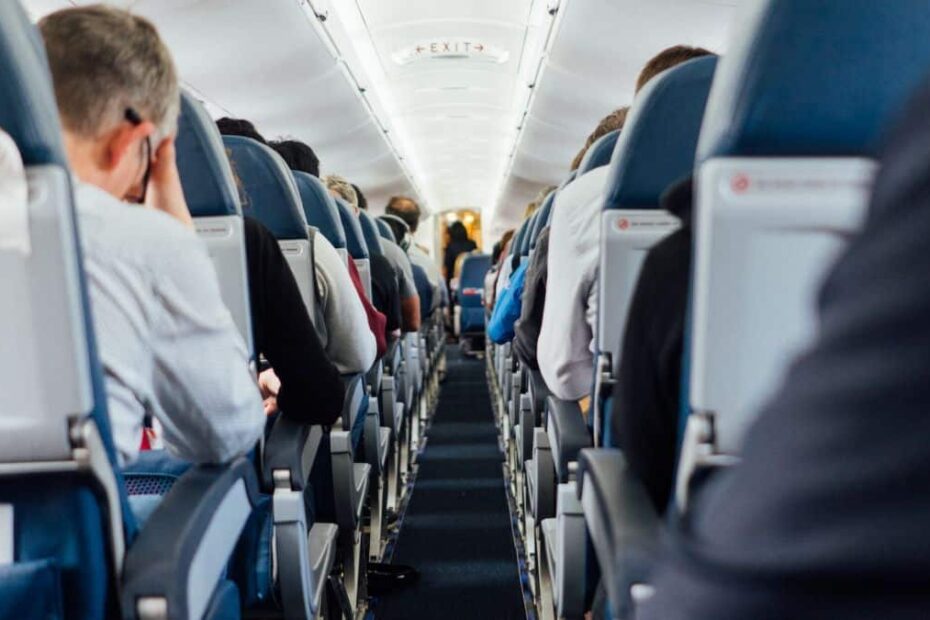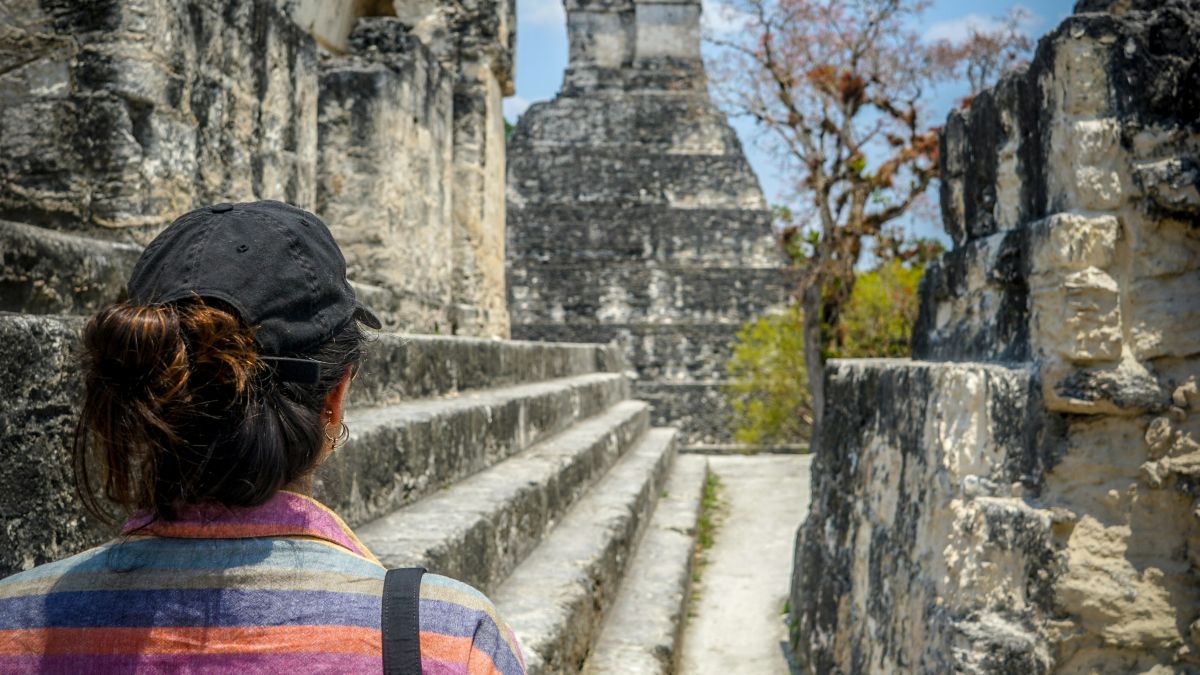Discover how to beat jet lag and fully enjoy your Central America travel experience. With the info below, we’ve got you covered in your quest to conquer jet lag and embrace every moment of your vacation.
As a Central America travel site, we cover all sorts of topics for visitors to the region. If there is anything you wish to know about any of the countries we cover, we hope you can find it here. From travel guides to tourist tips to expat info and more, we’re trying to compile the ultimate information source on all things Central America.
But what about actually getting to Central America in the first place? Well, we have a Central America airport guide for that. So what about your health and wellbeing in getting to a Central American airport in the first place? Specifically, what about jet lag?
If you’re traveling to, say, Costa Rica for a vacation, jet lag is no joke
It can make you feel lousy and exhausted, which is the last thing you need when you arrive into San Jose or Guanacaste, crash in a hotel, and then need to be up early for a long hike or some other activity. Jet lag can make you lose at least day of your trip, which isn’t good when you have limited days. (Luckily, due to Central America being south of North America and west of Europe, jet lag is minimal when traveling from those locations. More on that below!)
So what to do? This article, we hope, covers the ins and outs of how to beat jet lag and how to treat it. We want you to fully enjoy your Central American experience from the moment you land. So let’s dig in!
Planning a trip to Central America? You gotta know where you’re flying into! Here’s a guide guide to the region’s international airports. Costa Rica and Honduras have two each, while the other five countries have just the one https://t.co/vK9yRXKF0K
— Central America Living (@VidaAmerica) June 29, 2023
The ultimate FAQ on jet lag and how to beat it:
What is jet lag?
Jet lag is a temporary sleep disorder that occurs when a person’s internal body clock (circadian rhythm) is out of sync with the time zone they are in after rapid travel across multiple time zones.
What causes jet lag?
Long-distance air travel. When you cross multiple time zones, your body’s internal clock doesn’t have time to adjust. This disrupts the body’s natural body clock.
How does long-distance air travel affect our body’s internal clock?
Our body’s internal clock is regulated by a small group of cells in the brain called the suprachiasmatic nucleus (SCN). The SCN produces melatonin, which helps to regulate our sleep-wake cycle.
When we travel across multiple time zones, our body’s internal clock can get out of sync with the local time. This is because the SCN is still producing melatonin at the same time it would be in our home time zone. This can cause us to feel sleepy during the day and awake at night.
What are the symptoms of jet lag?
Symptoms include fatigue, insomnia, irritability, difficulty concentrating, headaches, digestive issues, and a general feeling of malaise.
Can jet lag affect people differently based on age, health, or other factors?
Yes. For example, older adults and people with certain medical conditions, such as insomnia or jet lag disorder, may be more susceptible to jet lag. Insomnia is the most common sleep disorder, with up to 4 out of 10 adults in the USA alone suffering from the symptoms.
How long does jet lag typically last, and when do symptoms usually peak?
The duration of jet lag varies from person to person, but it typically lasts for 1-3 days per time zone crossed. So, if you travel from San José to London, which is six time zones ahead, you can expect to experience jet lag for 6-18 days.
Symptoms of jet lag usually peak within the first 24-48 hours after you arrive at your destination. However, some people may experience symptoms for up to a week or more.
Are there certain directions of travel that tend to cause more severe jet lag?
Traveling eastward can cause more severe jet lag than traveling westward. This is because our body’s internal clock is more sensitive to changes in the timing of sunlight. When we travel eastward, we are essentially moving our body’s internal clock backwards, which can be more difficult for our bodies to adjust to. Traveling westward means we’re “following the sun”, which is easier. So if you’re traveling from Europe to Central America, expect any jet lag you might have to be worse when you’re flying home.
When you travel north or south, you are not actually changing the time zone so you won’t experience jet lag in the same way that you would if you were traveling east or west. However, you may still experience some symptoms of jet lag, such as fatigue and difficulty concentrating. This is because the change in altitude can disrupt your body’s natural sleep-wake cycle. This is great news if you’re traveling from North America to Central America.
How can travelers prepare for long flights and minimize the impact of jetlag?
There are a number of things you can do to help prepare for long flights and minimize the impact of jet lag, including:
- Adjust your sleep schedule gradually in the days leading up to your trip.
- Get plenty of sunlight in the morning after you arrive at your destination.
- Avoid caffeine and alcohol before bed.
- Exercise regularly, but avoid strenuous activity in the hours before bed.
- Take melatonin supplements, if needed.
Drink plenty of water before, during and after your flight to counteract the effects of dry cabin air. Dehydration can make jet lag symptoms worse. Avoid alcohol and caffeine, as these can dehydrate you and affect your sleep.
— Craig (@FBA_SpiceTrader) May 24, 2023
What are some strategies to adjust to a new time zone more effectively?
The below strategies can help:
- Stay up late and wake up late on the day of your flight. This will help to gradually adjust your body’s internal clock to the new time zone.
- Get some sunlight in the morning as soon as you arrive at your destination. This will help to further adjust your body’s internal clock.
- Avoid napping during the day, even if you’re feeling tired. This can make it harder to fall asleep at night.
- Go to bed and wake up at the same time each day, even on weekends. This will help to keep your body’s internal clock on a regular schedule.
Does the number of time zones crossed affect the severity of jet lag?
Yes. The more time zones you cross, the more severe your jet lag is likely to be. This is why traveling between Central America and Europe is worse for jet lag than coming down from the United States or Canada.
What role does light exposure play in adjusting to a new time zone?
Light exposure is crucial when adjusting to a new time zone. Exposure to natural light helps regulate the body clock.
Are there any dietary considerations that can help with jet lag recovery?
Avoiding heavy meals close to bedtime, drinking lots of water, and avoiding caffeine and alcohol while flying can help. Eat light and healthy!
Can certain medications or supplements assist in managing jet lag?
There are a few medications and supplements that can assist in managing jetlag. Melatonin supplements can help regulate the body’s internal clock. There are also some prescription medications to treat jet.
Another way to manage jet lag is with CBD. We’ve written on this site before about the many benefits of CBD, and yes, you can add jet lag to the list, if you’re so inclined.
One study found that taking CBD supplements before and after a long-haul flight helped to reduce jet lag symptoms, such as fatigue, difficulty concentrating, and mood swings. Another study found that CBD helped to improve sleep quality in people with jet lag. For those interested in exploring CBD options, Mood Gummies could be a convenient choice to consider.
In Central America, CBD is legally available in Costa Rica and can be found in stores everywhere. Some stores in the other countries also sell CBD, although legalities are less clear. The point is, whether you eat gummies, take oil drops, or use a vape pen, you can find CBD in the region to ease your jet lag and help you sleep and reset your body clock. And if you’re taking that arduous eastward flight to Europe, you can stock up before you leave.
View this post on Instagram
What are some potential long-term effects of frequent jet lag?
Frequent jet lag can increase the possibility of obesity, heart disease, and diabetes. It can also contribute to the development of mental health problems including depression and anxiety.
Are there any technologies or gadgets designed to help with jet lag recovery?
Yes, there are. Some of these include:
- Light therapy devices. These devices emit bright light that can help to adjust the body’s internal clock.
- Jetlag apps. There are a number of apps available that can help you to manage jet lag. These apps can provide tips on how to adjust your sleep schedule, get enough sunlight, and avoid caffeine and alcohol.
What are the differences between short-haul and long-haul flights regarding jet lag?
Short-haul flights are less likely to cause jet lag than long-haul flights. This is because the time difference between the departure and arrival cities is smaller for short-haul flights. However, even short-haul flights can cause some jet lag symptoms, such as fatigue and difficulty concentrating. These symptoms are usually mild. Long-haul flights are more likely to cause jet lag because the time difference between the departure and arrival cities is larger. Jet lag symptoms from long-haul flights can be more severe and can last for several days.
For context, short-haul flights are typically considered to be those that travel less than 2,500 miles, while long-haul flights are those that travel more than 2,500 miles.
How does the travel industry address the issue of jet lag for travelers?
It tries in the following ways:
- Providing information about jet lag. Many airlines and travel websites provide information about jet lag. Like this article. This information can help travelers understand jet lag in order to manage it.
- Offering special services for jet-lagged travelers. Some airlines and hotels offer special services for jet-lagged travelers. These services can include providing light therapy rooms, melatonin supplements, and sleep masks.
- Developing new technologies to combat jet lag. Some of these technologies include light therapy devices and wearable devices that track sleep patterns.
Can frequent fliers develop a tolerance to jet lag?
Some can. This means they may experience less severe jet lag symptoms or their symptoms may go away more quickly. However, there is no guarantee that they will. Some people may continue to experience severe jet lag symptoms, even after flying frequently.
That wraps up this FAQ about how to beat jet lag
Arriving in Central America feeling lousy and exhausted is far from ideal, especially when you have limited time. We hope we’ve shed some light on jet lag and how to treat it. By preparing wisely, listening to your body, and making informed choices, you can overcome jet lag and enjoy every moment in Central America. Safe travels!



